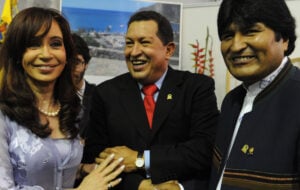
In Seeing Like a State, James C. Scott argues, among other things, that states have an incentive to rationalize the societies they oversee. Centralized, hierarchical governance organizations have little patience for the organic developments of civil society, which from their top-down perspective seem anarchic and messy.
From planning new cities with streets in neat grids, to imposing uniform weights and measures, to changing place-names to fit some provincial organizational scheme, politicians and bureaucrats often treat basic questions of social organization as an engineering problem. This is why rationalist governance systems often fail: they cannot, by their nature, deal with the complexities and interdependencies that make societies healthy, which must emerge from the bottom up.
F. A. Hayek made a very similar claim about the field of economics, especially macroeconomics, in his Nobel Prize address. Hayek chided economists for their “pretense of knowledge,” noting that economists’ imitation of the methods of the natural sciences, intended to place economics on a surer footing, had actually contributed to an erosion of genuine economic knowledge. The final sentence of Hayek’s opening paragraph was especially audacious, given his audience.
Economists had no cause to celebrate their advance in knowledge, Hayek warned: “We have indeed at the moment little cause for pride: as a profession we have made a mess of things.”
The planner’s impulse can be seen in many areas of contemporary economics. This impulse is especially prominent among theorists of monetary policy, as well as monetary policymakers. Too many economists are incapable of understanding monetary policy as anything else than creating forward guidance for the path of a policy instrument, such as an interest rate.
On this view, the macroeconomy is a machine, one that requires skilled technicians to intervene on a regular basis to keep that machine operating smoothly. Various statistical aggregates are an indispensable part of the monetary tinkerer’s toolkit; divorced from the robust knowledge-generating and error-correcting properties of the market process, monetary policymakers have nothing else to use. But these statistics often obfuscate more than they illuminate, in terms of conveying genuine information that is relevant to the problems monetary policy is supposed to address. Again quoting Hayek, macroaggregates frequently “conceal the most fundamental mechanisms of change,” and so offer no solid foundation for the tinkerers’ projects.
The modern monetary policy project, as institutionalized in discretionary central banking, is doomed never to deliver on its promises. It can’t.
Treating a complex system as an engineering problem for the purposes of control is bound to cause a host of negative unintended consequences, many of which are worse than the problems monetary policymakers are ostensibly trying to solve. This partly explains why, for example, there is no clear evidence of increased economic stability in the post-Fed period in the United States, as compared to the pre-Fed period.
Despite this, the power and influence of central banks continues to grow around the world. Although contemporary monetary policy, both in theory and practice, is of dubious benefit to the public, it certainly is a benefit to monetary economists! Somehow, after every instance of instability, markets—especially the financial sector, the favorite blackguard of tinkerers and demagogues alike—are to blame, rather than central bankers.
And, for some reason, the solution is always going further down the seeing-like-a-state path. Count me skeptical. Would-be planners have planned enough; enthusiastic tinkerers need to curb their enthusiasm. As long as central banks continue to wield power in excess of responsibility, we can expect more monetary malpractice, always to the benefit of the malpractitioners.
If monetary policymakers actually wish to contribute to the public welfare, they need to stop seeing like a state. Reliable rules, rather than dilettante discretion, are the answer. And if the urge to tinker is stronger even than rules, we should consider whether we would be better off without any central bank at all.




